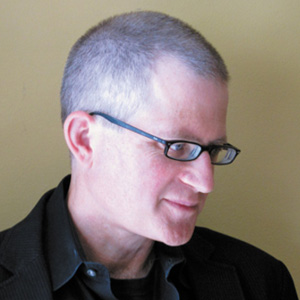 So profound are Christian Wiman’s pensées in the current issue of Image that I feel impertinent even engaging them. But they are so deeply engaging that I can’t refrain.
So profound are Christian Wiman’s pensées in the current issue of Image that I feel impertinent even engaging them. But they are so deeply engaging that I can’t refrain.
Pensées is my term to describe these reflections, not Wiman’s. He calls the essay “Varieties of Quiet.” When I first read the title, I thought it would be about meditation.
But no, it’s about what language can’t say, especially the language of faith—and even the language of poetry. I say “even” because Wiman is a poet, and editor of Poetry magazine.
Wiman comes down hard on the language of Christianity—because it doesn’t speak to his soul’s experience. He writes that church, with its language of communal worship, “is the last place in the world where [people] are going to find God.”
I nod assent, remembering a Catholic friend’s counsel, when I was moving toward baptism years ago, that joining the institution should be the last step in a conversion process. As it was for me, thank God.
Wiman does go to church (though he gets so bored there “that I often recite poems to myself in my head”). It’s the language of dogma, which has become too glib, too easy, that he can’t relate to.
“I don’t know what it means to say that Christ ‘died for my sins’ (who wants that? who invented that perverse calculus?).”
My relief at reading this statement of Wiman’s is appropriately beyond words. I’ve never understood this formulation either.
Rationally, it makes no sense. I spend all of Lent every year, and particularly Holy Week, trying to get my mind around this core belief of my Christian faith.
And yet, like Wiman:
I do understand—or intuit, rather—the notion of God not above or beyond or immune to human suffering but in the very midst of it, intimately with us in our sorrow, our sense of abandonment, our hellish astonishment at finding ourselves utterly alone, utterly helpless. How to speak of these things? Language, even as it reaches for a life beyond this one, must bear the mark of being lost.
Yet how does language bear this mark? And what, then, about the language of poetry?
Writing poetry is Wiman’s salvation—in a sense.
Yet (another yet; the movement of his pensées is a twisting string of and yet turnarounds) for poetry to save, we must be already healthy enough to reach for salvation.
Wiman is not healthy. He lives with a dreadful disease that could take his life at any moment. And so:
When life is thriving in us, we crave to get beyond it: experience that takes us out of ourselves, poetry that articulates a shape and space for the inexpressible, prayer that obliterates self-consciousness for the sake of God. When it is death that is thriving in us, though, when the inexpressible has begun to seep into us like some last ineluctable dusk, and the tick of each instant is the click of a door closing us out…
What then?
Then…he weeps.
What I do is whine.
I have lived what Wiman is saying here. When I feel healthy and perky (like today, with lovely energy to write this post), I can pray and read poetry and feel enwrapped in God’s love. But, oh, on those hard, exhausted days that seem hopeless, not even my husband’s caring love can convince me of God’s.
We used to sing compline together before turning out the lights at bedtime. But when I started suffering from an insomnia that no drugs or alternative treatments could relieve, I couldn’t keep singing all the compline lines about sleeping in God’s peace, like Psalm 4’s “I lie down in peace and sleep comes at once, / For you alone, Lord, make me dwell in safety.”
My husband would try to encourage me: “It’s a prayer for sleep, it’s not a promise of sleep.”
I just whined: “But the promise won’t be kept for me, so to pray it only upsets me more.”
Yet, yet… though there is, Wiman says, a “disconnect between language and life,” writing poetry makes possible for him a “creative abandon.”
“Or,” he amends, “perhaps I should say that I simply cannot live with the same creative abandon with which I can (sometimes) write, because life is a hell of a lot more difficult—and important—than art.”
Whew. I have sat a long time in silence since keyboarding that sentence.
He ends the essay with art: With a poem. A poem that is mostly silence. A couple words… then space. A few more words… then more space.
It’s as if the words are there in order to create the silence that surrounds them.
This is a difficult post to end, because I know I haven’t made a dent in the depths of Wiman’s pensées. Reader, do read them.
Click here to read an excerpt from “Varieties of Quiet.”











